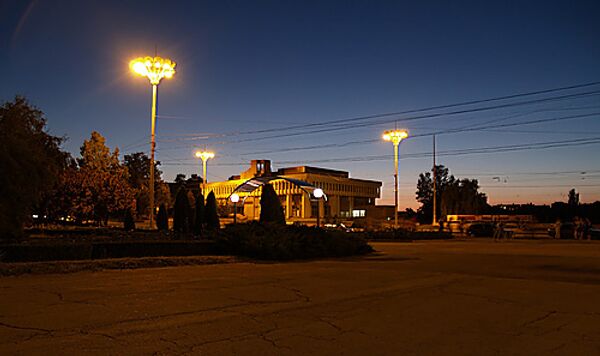The foreign minister of Moldova's breakaway region of Transdnestr rejected on Wednesday accusations by the Moldovan authorities that the peacekeeping operation in the region is inefficient.
On Monday, Moldova's deputy premier on reintegration Viktor Osipov said the peacekeeping operation, that has been ongoing since 1992, was inefficient as the Moldovan authorities were unable to open a polling station for the Moldovan constitutional referendum on September 5 in the disputed area in Korzhevo due to local protestors.
"I would like to stress that it is not the function of the peacekeeping operation to ensure interaction between the power bodies of the two parties. Involving peacekeepers in what is not meant to be their field of activity means shattering the peacekeeping operation," Vladimir Yastrebchak told journalists.
The Russian-speaking province of Transdnestr has maintained de facto independence from Moldova since a brief war in 1992, which erupted from a buildup of tensions following the breakup of the Soviet Union.
The peacekeeping operation in the region is carried out by the Collective Peacekeeping Forces (CPF), comprising 402 Russian, 492 Transdnestrian, 355 Moldovan troops and 10 Ukrainian observers.
Russia has had peacekeepers in the region since July 1992, and the negotiation process has been frozen since February 2006. Russia, Ukraine and the OSCE are mediators in the conflict, and the European Union and the United States are observers.
Yastrebchak said peacekeepers should preserve peace and stability, and it is up to the two sides to agree to everything else.
"If one party has no desire to agree, the peacekeepers are not to blame. They fulfill their task clearly, registering what is happening and trying to avoid escalating tensions," Yastrebchak added.
Tensions in the region flared up shortly after four pro-Western parties ended eight years of communist rule in Moldova by forming in September 2009 a coalition government, which has openly supported unification with Romania and closer ties with the West.
The new Moldovan leadership has demanded the withdrawal of Russian troops from the country and the replacement of the current peacekeeping operation with a multi-national mission with an international mandate.
Transdnestr, however, has asked Russia to increase its peacekeeping contingent in the conflict zone to 2,400 troops amid concerns that Moldova could attempt to bring its breakaway region back under its rule through military intervention.
The talks on the future of Transdnestr in the "five-plus-two" format, involving Russia, Ukraine, OSCE, Moldova, Transdnestr, with the United States and the EU as observers, have been frozen since February 2006.
Tiraspol insists on independence, and even integration with Russia, while Chisinau says it is willing only to give Transdnestr autonomy within Moldova.
TIRASPOL, September 8 (RIA Novosti)


